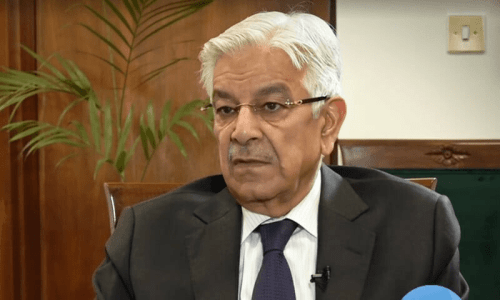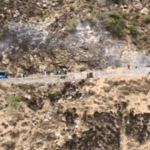ISLAMABAD: On Wednesday, Defense Minister Khawaja Asif again pointed the finger at Afghanistan for not doing more to stop terrorism and demanded more stringent border controls to lessen the threat.
“The situation at the border needs to be fundamentally changed in light of the rise in terrorist occurrences. Mr. Asif wrote on X, the former Twitter platform, “The origin of terrorism in Pakistan is in Afghanistan and despite our efforts, Kabul is not making any progress in this direction.”
He grieved that terrorists were operating freely against Pakistan from the area of the Taliban regime, even though they were aware of the terrorists’ hideouts. “Kabul is not available for cooperation (in addressing the threat of terrorism),” the minister emphasized.
His remarks were made in the context of several attacks that have occurred in the last few days, including as those on the navy base and Gwadar Port Authority complex in Turbat, as well as the suicide attack on the van that was transporting Chinese laborers in Shangla.
Following her attendance at a special security meeting called by Prime Minister Shehbaz Sharif, the minister shared these comments. His comments somewhat mirrored the conversation that took place during the meeting, since the PMO’s security meeting statement had called for “a regional approach” to counter terrorism and expressed concern over “sanctuaries available to terrorists across the borders.”
A video footage that went popular on social media recently featured Yahya, an Afghan Taliban member, helping Pakistani militants operating in Afghanistan organize a cross-border operation against Pakistani troops stationed along the border.
The Pakistan-Afghan border is distinct from other conventional international borders, according to the defense minister, who was discussing the intricacy of the border security situation. “Pakistan will need to stop the flow of terrorists across this border and enforce all international laws and customs.” Both nations can advance their relations in this way, just like they would as long-standing good neighbors. Passports and visas can be used to continue traveling,” he insisted.
All Afghan nationals are required by law to have a valid passport and visa in order to visit Pakistan as of November 1. Concurrently, there was a notable transition to a policy of “one document regime,” which deviated from the custom of granting particular travel permits to members of tribes that cross the almost 2,600-kilometer border between Afghanistan and Pakistan.
It’s still unclear, though, which recent initiatives to strengthen cross-border movement restriction the minister was alluding to.








